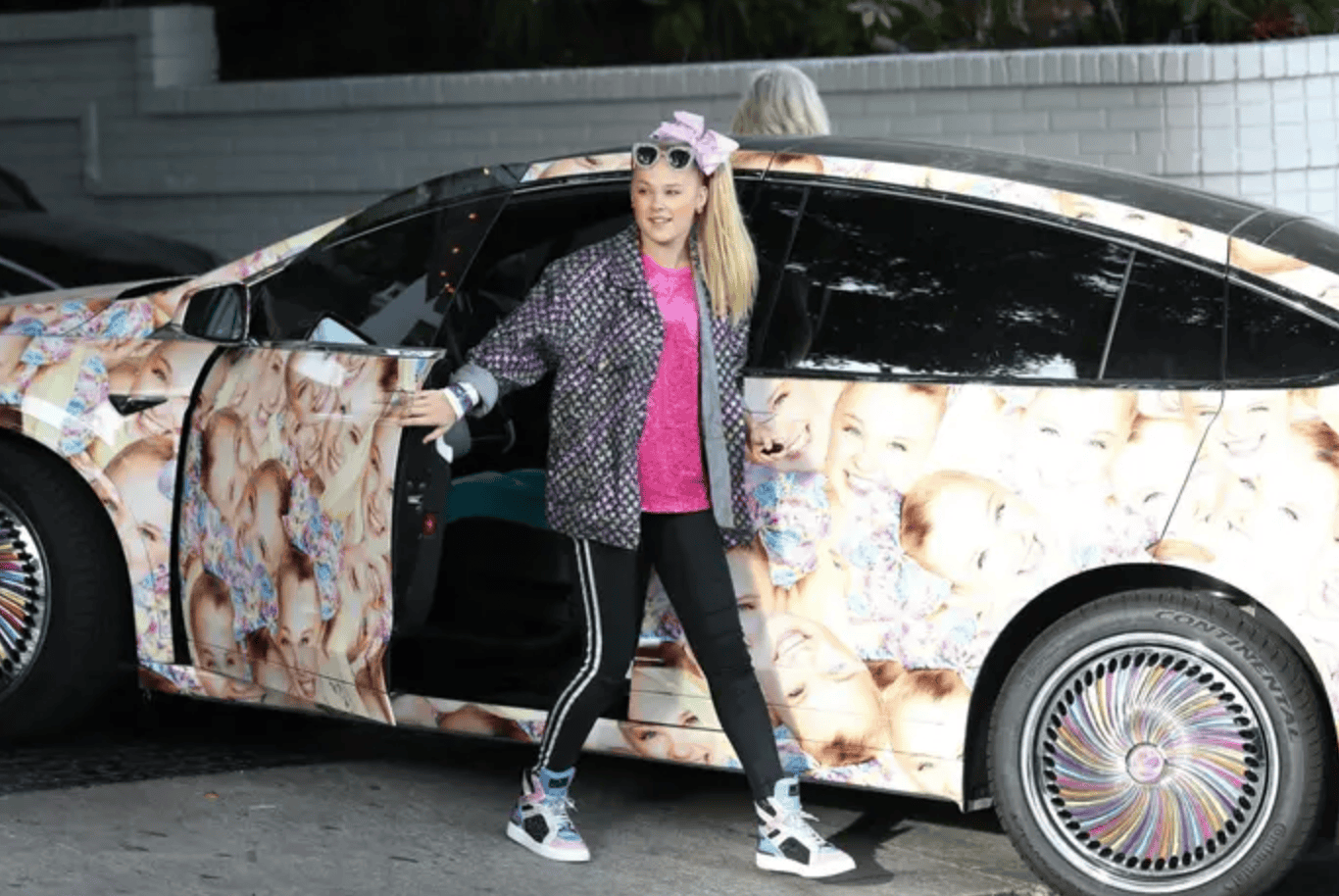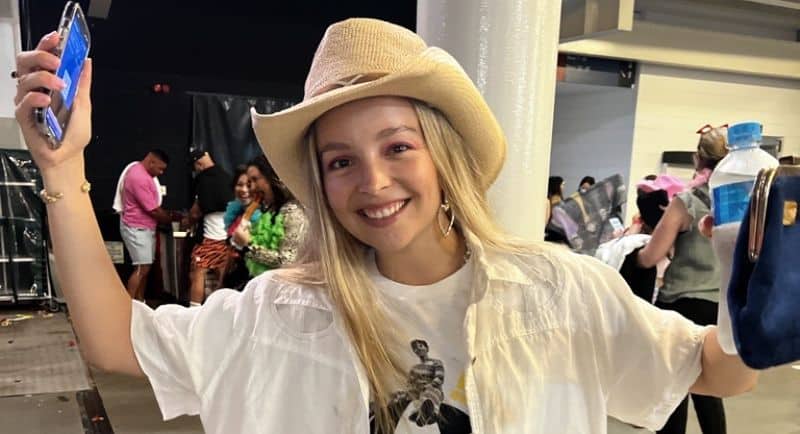‘Obsessed’ is a monthly deep dive into social and cultural trends that can help marketers inform the way they think. Led by Kate O’Loughlin, Initiative strategist and self-confessed obsessive, ‘Obsessed’ will be a magic school bus to expand marketing mindsets and help brands remain relevant amongst an ever-changing cultural landscape.
This month, I’ve been obsessed with Jojo Siwa’s release of “Karma” and her new personal brand of goth-girl-grunge-queer-pop-rock singer.
While there is nothing wrong with celebrities or influencers rebranding as they enter a new phase in their life, the internet collectively cringed while watching Siwa make continual PR blunders across a series of interviews promoting her new song.
Child stardom is a sensitive and nuanced topic, and I truly can’t understand what it would be like growing up as a kid in the public image. Teen stars have a fraught history in their transition into adulthood and it would be remiss to not address the unimaginable scrutiny and pressure they face in doing so.
However, it’s not the rebrand itself that’s raised eyebrows, but rather the seeming lack of authenticity and consistency for Siwa’s new image.
But who is Jojo Siwa? For those who didn’t grow up watching Dance Moms, it was on this series that Siwa found her stardom and was propelled to fame as the ‘bow girl’. From here, she became a YouTube creator and Nickelodeon star, and in 2021 she began a move away from the Nick scene after coming out as a member of the LGBTQIA+ community.
While Siwa had been teasing the shift in her image across her socials for the last few months, a recent interview with Billboard at the GLAAD Media Awards caused an immediate stir. Siwa announced that: “No one has made this dramatic of a change yet. No one has made, in my generation, this extreme of a switch. I am the first in the generation, it is very scary, but someone’s gotta do it.”
Siwa has since claimed to create a new genre called “gay pop”, and while she acknowledged some of her predecessors (see: Miley Cyrus), she did also announce she was looking forward to bringing “this era back”.
Commenters have been quick to call out the powerful LGBTQIA+ artists who have come before Siwa such as Chappell Roan, Elton John, Kim Petras, and Sam Smith.
So she ditched the bows, caused a stir online, and released a song… why should you care? Siwa’s unsteady rebrand carries lessons that can (and should) be considered by any marketer looking to shake up their brand’s image.
Commit to the bit.
While Siwa’s choice of language and demeanour seemingly shows a full commitment to the grunge image, she is still driving the car she chose to wrap with her childhood face during peak bow-era.

The outfits and image she’s currently adopting are really an iteration of her previous life, just with slightly more skin showing and black glitter instead of rainbow. At her core, she still appears to be the same old Jojo.
A brand that is looking to transition its image to an entirely new demographic needs to do so fully and wholeheartedly, without leaving a remnant of what once was. Pivoting the look, tone, feel and characteristics of an entirely new persona will help audiences make a quick transition into accepting the new brand image.
Work with your audience.
Siwa’s lack of acknowledgement of the history and cultural importance of the queer artists who came before her has (fairly) caused uproar amongst LGBTQIA+ fans. While artists who have made similar transitions have embraced “camp” culture, Siwa’s image seems like a stereotype of a ‘bad girl’ image – lots of black, and slightly punk rock.
When rebranding, marketers should work with their audience through a clear and thorough testing process. This ensures that the final brand image resonates with the ideal target market and minimises the risk of rejection.
Transparency is key.
The most recent piece to the Siwa rebrand puzzle has been the discovery that her song “Karma” is, in fact, a cover, and not Jojo’s own song. The song was originally recorded by Matisse in 2012, however was never released. While Siwa has not claimed to write the song herself, she has not publicly acknowledged the near like-for-like exactness of the lyrics (as of 11 April 2024 at least).
It’s critical that companies are fully honest and transparent throughout the entire rebranding process. Audiences are cautious when adjusting to a new look and it’s critical to be upfront about any changes in process or product as soon as they occur.
While I don’t know if I’ll be rushing to listen to the rest of Siwa’s album, I will certainly be watching her next moves. Ultimately, despite the trials and tribulations, I do wish her success. After all, she must be doing something right since the internet can’t seem to look away… which is really all any brand wants from a rebrand, right?
See also:
Kate O’Loughlin: Marketing lessons from the rise of run clubs
Kate O’Loughlin: The Carnival World Cruise: brand titanic… or life raft?
Top image: Kate O’Loughlin
